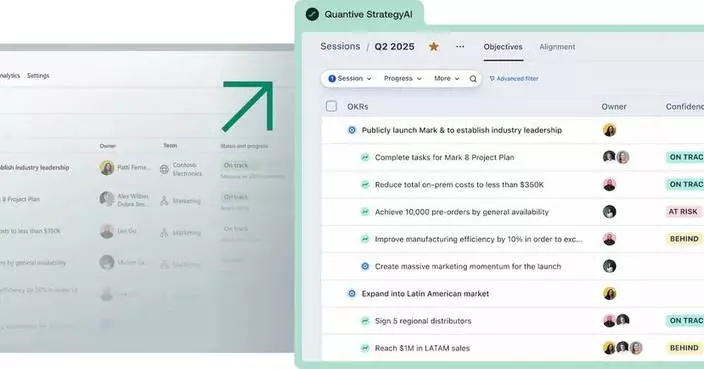Giant pandas Bao Li and Qing Bao from China are settling into their new home at the Smithsonian's National Zoo in Washington D.C.
Arriving from China on Tuesday, the staff at the zoo are excited to welcome them.
"Oh, my gosh. It is beyond exciting for us to be able to welcome these two new giant pandas here to the zoo. We have such a long history with the giant panda conservation program dating back to 1972. And we've made so many amazing headway in this area, to be able to welcome these two to open that new chapter is just very exciting for us," said Stephanie Brinley, deputy director of the National Zoo.
Dr. James Steeil, supervisory veterinary medical officer at the National Zoo, traveled with the three-year-old pandas from China in a specially equipped Fed Ex cargo plane dubbed the Panda Express.
"I went about a week ahead of time to China, and from there I got to learn a lot of the behaviors and how both of those pandas worked with our Chinese colleagues, and I got to do visual health assessments on those pandas to then determine whether there were anything that I needed to be prepared for the flight," said Dr. Steeil.
The pandas made the journey in excellent health. Researchers here will study them as they age, gaining knowledge that will help conservation efforts.
Zookeepers said their personalities are already emerging.
"Qing Bao is a little more reserved. She's definitely very cautious. She looks at her environment very carefully. Bao Li is very people oriented. He loves to be around his keepers, they're a little bit opposites. But for this pair, you know, my hopes are just hopefully someday they'll have their own cubs," said Laurie Thompson, assistant curator of the national zoo.
For now the two bears have only seen each other from a distance and will live apart in separate yards and indoor areas.
"Because pandas only are reproductively active for like two days a year, so then they're strictly solitary from before that. We keep them all solitary except for the times of breeding," said Dr. Steeil.
A team of experts from China is here to help the bears settle in. Staff members say collaborations with colleagues from China are crucial.
"It's a wonderful cooperative, collaborative relationship that we have with our Chinese counterparts," said Brinley.
The National Zoo is preparing for large crowds, but visitors will have to wait a bit longer to see Bao Li and Qing Bao in person, as they won't make their public debut until January. The pandas need a few months to acclimate before the crowds arrive.
In the meantime, zookeepers are improving the panda habitat and working to improve the visitor experience.
This is the second time this year that China has sent giant pandas to the United States.
Sent as part of a 10-year international giant panda protection cooperation program, the pandas, Bao Li, male, and Qing Bao, female, departed their hometown in southwest China's Sichuan Province, accompanied by an experienced breeder and a veterinarian to help them quickly adapt to their new environment at the US zoo.

China's panda pair settle into new home at zoo in Washington

China's panda pair settle into new home at zoo in Washington

China's panda pair settle into new home at zoo in Washington


















































